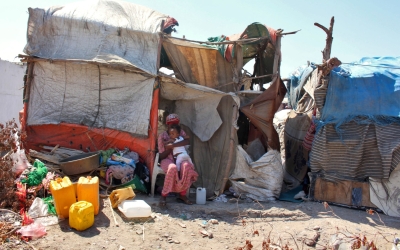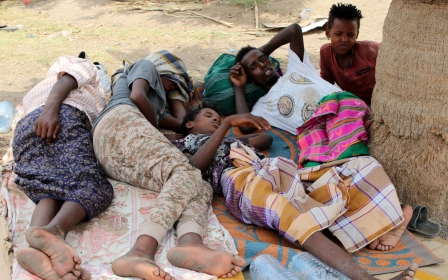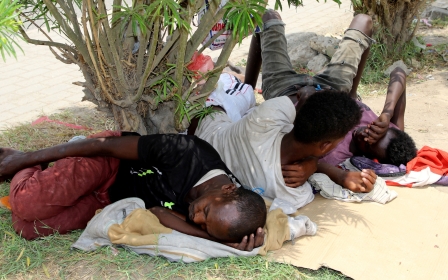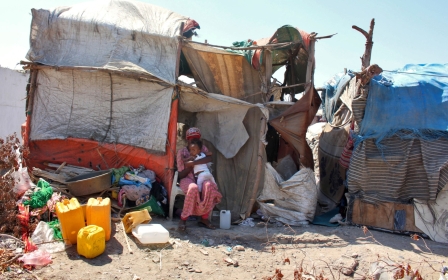Yemen: Houthis and STC accused of forcing Ethiopian women into 'sexual slavery'
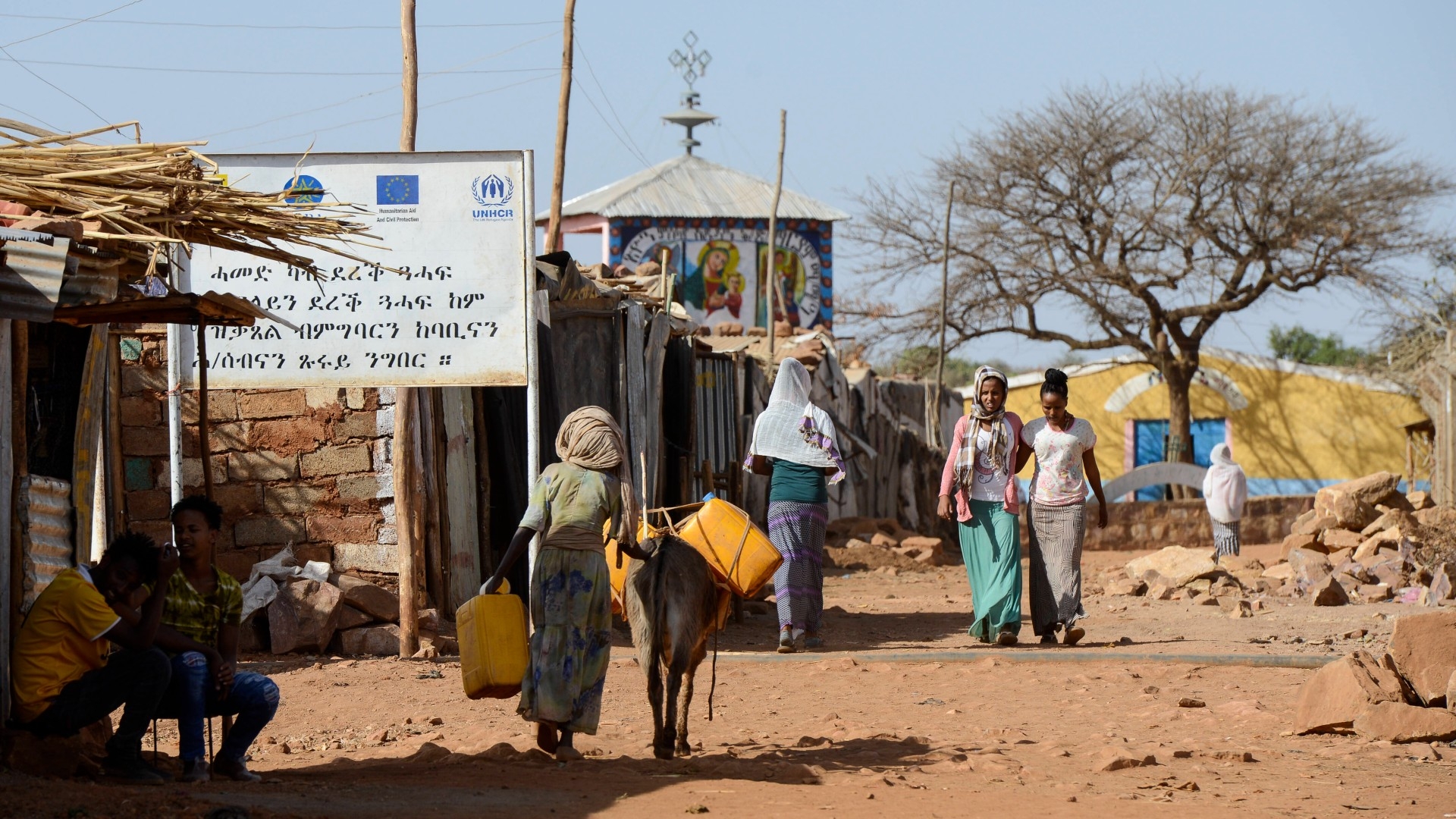
Ethiopian women who try to cross into Saudi Arabia from Yemen are subject to "sexual slavery" and abuses by Houthi forces and fighters from the Southern Transitional Council (STC), a Yemeni human rights group has alleged.
"Women are facing sexual violence and harassment by all parties on the ground," a spokesperson who researches migration issues at Mwatana for Human Rights, a Yemeni NGO that documents atrocities in the country, told Middle East Eye.
"We documented one example of a woman who was exposed to sexual violence for over five months, she was raped and got pregnant," the spokesperson said. "There are also many girls who are being trafficked," he added.
The spokesperson's claims build on a mounting body of evidence of serious human rights violations by Yemen's warring sides.
Human Rights Watch (HRW) has previously reported that the Houthi rebels, who control much of the country's north, are targeting Ethiopian women trying to cross into neighbouring Saudi Arabia.
New MEE newsletter: Jerusalem Dispatch
Sign up to get the latest insights and analysis on Israel-Palestine, alongside Turkey Unpacked and other MEE newsletters
The spokesperson from Mwatana said that once in Yemen, the Ethiopians were mainly confined to makeshift tents or unorganised camps in the cities of Aden, Souk al Raqo, al-Thabet and Ataq, with women and children among the most vulnerable.
'It is deeply distressing to hear reports of Ethiopian women being subjected to forced sexual slavery and sexual harassment'
- Afrah Nasser, journalist
"Sometimes the abuse is an attempt by Houthi forces to get money," he said. "They sexually assault women and force them to get money from their families back in Ethiopia."
Thousands of Ethiopians flee across the Gulf of Aden every year with the hope of finding work in Saudi Arabia or the Arabian Gulf.
More than 77,000 have used Yemen as a transit point this year, a figure that has already surpassed last year's numbers.
'Deeply distressing'
Rights groups such as Mwatana, HRW and others have previously accused Saudi Arabian border guards and forces from Yemen's internationally recognised government of also committing violations against migrant women, including killing and maiming.
Afrah Nasser, a Yemeni non-resident fellow at the Arab Center Washington DC, said it was "distressing to hear the reports" considering the long and rich history between the two nations.
"It is deeply distressing to hear reports of Ethiopian women being subjected to forced sexual slavery and sexual harassment," she said.
"Such actions are not only heinous violations of those women's fundamental human rights but also reflect a wider pattern of gender-based violence and discrimination that occurs across all of Yemen going totally unaddressed."
The conflict in Yemen, which has been raging since the Houthis seized Sanaa in 2014, has resulted in hundreds of thousands of deaths and triggered a major humanitarian crisis.
A Saudi-led military intervention began in 2015, but a UN-brokered ceasefire in April 2022 drastically reduced casualties. The truce expired in October, but fighting has largely remained on hold.
Houthis deny claims
Speaking to MEE, senior Houthi official Ali Alqahoom denied the claims, adding that the reports had "no connection to the truth".
"This organisation and others do not care about human rights, they operate under these names to serve foreign agendas and achieve their goals in exchange for dirty money. They do not care about the truth, but are accustomed to stories of cheap political blackmail and throwing false accusations," Alqahoom said.
Meanwhile, Ali Mahmood, the press and media officer for the STC's president, said it was the first time the secessionist movement had heard of its forces abusing migrants.
"We will wait to recieve any further information. Allegations of human rights violations and abuses must be thoroughly investigated," he told MEE.
"Our commitment in the STC is for justice and accountability... The STC will support the independent judiciary and its investigations in any such matter," he added.
The STC, which believes the south should be an independent state, has previously been accused by the UN of holding hundreds of Yemenis arbitrarily and torturing prisoners.
In late August, HRW revealed that Saudi border guards killed hundreds of Ethiopian migrants and asylum seekers attempting to cross the Yemeni-Saudi border over the past year.
Survivors said that Houthi members working with smugglers would extort or transfer them to detention centres, where people were abused until they could pay an "exit fee".
Witnesses also described how the bodies of men, women and children were strewn across the mountainous landscape along the border.
Middle East Eye delivers independent and unrivalled coverage and analysis of the Middle East, North Africa and beyond. To learn more about republishing this content and the associated fees, please fill out this form. More about MEE can be found here.


